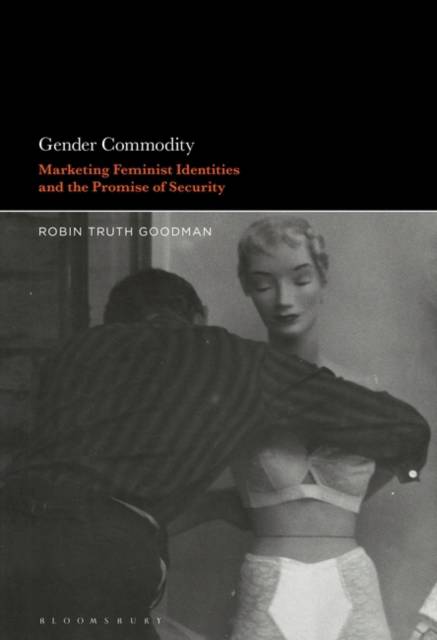
Je cadeautjes zeker op tijd in huis hebben voor de feestdagen? Kom langs in onze winkels en vind het perfecte geschenk!
- Afhalen na 1 uur in een winkel met voorraad
- Gratis thuislevering in België vanaf € 30
- Ruim aanbod met 7 miljoen producten
Je cadeautjes zeker op tijd in huis hebben voor de feestdagen? Kom langs in onze winkels en vind het perfecte geschenk!
- Afhalen na 1 uur in een winkel met voorraad
- Gratis thuislevering in België vanaf € 30
- Ruim aanbod met 7 miljoen producten
Zoeken
Gender Commodity
Marketing Feminist Identities and the Promise of Security
Robin Truth Goodman
Hardcover | Engels
€ 195,45
+ 390 punten
Uitvoering
Omschrijving
Gender has become a commodity. Today's economy trades in symbols and narratives as much as in objects. As such, gender can be bought and sold, produced as an object, and demands constant work. What makes the commodity object seem alien, mysterious, and even threatening, Marx tells us, is that the worker's social relations - his subjectivity - are taken away from him and stamped into the object which then appears to have a life of its own, disassociated and threatening. Gender Commodity argues that gender is a social relation made into such an alienated object. In today's situation of radical insecurity, people are reaching out and identifying with objects - including symbolic ones - that promise quite falsely that they grant stability, duration, and fulfillment, and gender has been made into one of those.
Gender Commodity is an interdisciplinary study that brings literary studies into dialogue with the surrounding mediascape around issues of gender, culture, and economy. It also asks how the symbolic production of gender commodity at home informs an imagination of gender policy as it reaches out globally. As it criticizes gender-affirmative feminism for participating in the culture of the commodity, Gender Commodity also looks to feminism to imagine gender otherwise.
Gender Commodity is an interdisciplinary study that brings literary studies into dialogue with the surrounding mediascape around issues of gender, culture, and economy. It also asks how the symbolic production of gender commodity at home informs an imagination of gender policy as it reaches out globally. As it criticizes gender-affirmative feminism for participating in the culture of the commodity, Gender Commodity also looks to feminism to imagine gender otherwise.
Specificaties
Betrokkenen
- Auteur(s):
- Uitgeverij:
Inhoud
- Aantal bladzijden:
- 200
- Taal:
- Engels
Eigenschappen
- Productcode (EAN):
- 9781501388026
- Verschijningsdatum:
- 10/02/2022
- Uitvoering:
- Hardcover
- Formaat:
- Genaaid
- Afmetingen:
- 152 mm x 229 mm
- Gewicht:
- 435 g

Alleen bij Standaard Boekhandel
+ 390 punten op je klantenkaart van Standaard Boekhandel
Beoordelingen
We publiceren alleen reviews die voldoen aan de voorwaarden voor reviews. Bekijk onze voorwaarden voor reviews.









